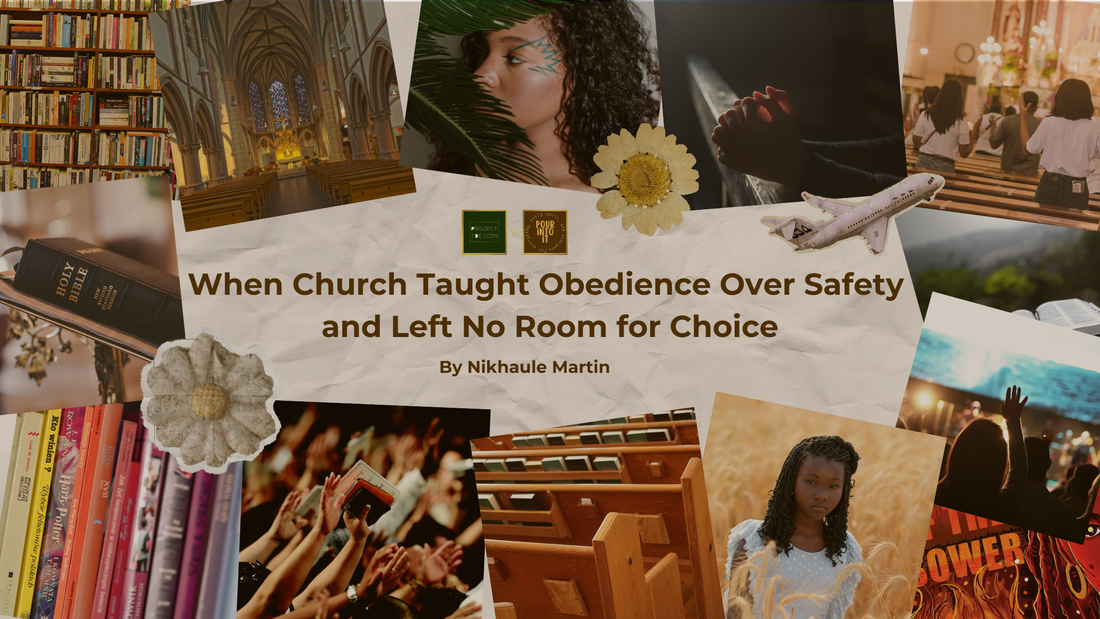Project (De)construction was born from my personal deconstruction journey. I spent nearly the entirety of the first two decades of my life going to the same church. Indoctrinated with various interpretations of the scriptures, and teachings that weren't at all scriptural but generational and cultural. I can talk quite extensively about the harm churches can do to communities of color, queer communities, and especially to girls and young women. I’ve had my fair share of run-ins with men within the church who held titles like teacher, reader, and usher—men who wore those titles proudly while quietly, intentionally preying on young women.
In a Black conservative church, you learn early what your role is supposed to be: seen but not heard. Expected to be enthusiastic about church and Christianity. If you hesitated, or expressed even the smallest desire to not engage, you were guilt tripped and reminded of everything God had supposedly done for you. It was all about obedience and submission—the focus was on scriptures stressing that children must honor their parents, regardless of how they were treated.
Reflecting on the first season of Project (De)construction, a number of the volunteers shared stories that mirrored my own. We didn’t have a choice about going to church or practicing Christianity. We went because we were ordered to. It was church or else. So many of our stories intertwined in ways that felt affirming yet deeply saddening, revealing just how many of us experienced the same rigid expectations within the congregations we grew up in.
I know too well how unsafe church can be for a young girl. Men, old enough to be my father or grandfather, relentlessly pursued me even as a minor. I remember one telling me as I approached 18 that he’d been waiting for me. Even now, I think about how many young girls hold onto stories like mine, of being eyed by men who should have been safe, should have protected rather than pursued us. The church, supposedly our sanctuary, turned out to be anything but, filled with people who wore their authority like a shield, using it to hide and even justify their wrongs.
Project (De)construction was meant to give voice to stories like these—raw, hard truths from people who grew up steeped in religion but are no longer willing to pretend everything they experienced was right. We deserve spaces that don’t just tell us to fall in line but allow us to ask, to explore, to heal. This project and its stories have been a step in that direction—a place to lay it all out and finally find some truth, not dictated but chosen.
